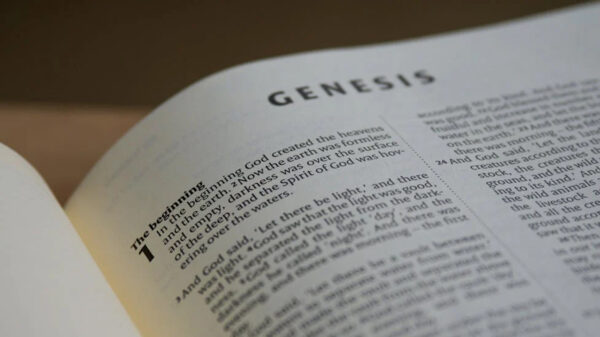Imagine yourself being questioned by a friend or family member in the following way:
“Aren’t there late insertions in the Biblical text? If parts of the gospel have been corrupted, then how can anyone actually trust that the text is reliable?”
Here’s a response I gave to Bobby Conway at the One Minute Apologist:
“This is something I think that a lot of our young brothers and sisters, kids who are coming up through high school and end up in the university setting, may never have even thought about. Maybe they had never even known that there are some aspects, some small pieces, of the gospels that we don’t have good textual documentation for. They appear to be late additions.
They are small pieces of text (often single-word variants with very few exceptions), that have been inserted or altered at some point. Some of these variations don’t appear until many centuries after the earliest copies. I think a lot of skeptics have looked at those examples and argued, ‘This word, this line, does not appear early, it appears to be a late insertion—see, you can’t trust any of this stuff. It’s been corrupted over time. You can’t trust it.”
But, I think that’s really a lazy way to approach the text.
Every crime scene I’ve ever worked contains both artifacts and evidence. Sometimes a victim dies just before I get there. If paramedics have been there before I arrive, they’ve probably tried to resuscitate the victim.
So when I get there, I’ve got a scene that’s filled with evidence of the actual murder; but also filled with the mess from the paramedics. I’ve got their sutures. I’ve got their bandaging. Half the blood smears are from paramedics and not even from the suspect or the victim.
I’ve got both evidence and artifacts in my crime scene.
I’ve learned how to carefully remove the artifacts to make sure I just get back to the basic evidence I’m going to need to make a case. I simply try to understand what caused the artifact to enter my crime scene so I can explain it later to the jury. And, then, I safely remove it from consideration and and say, ‘OK. Let’s remove this, the mess made by the paramedic—Let’s take it out of the scene and see what we have left.’ Then we can actually look at the evidence in the scene.
And I’ve done a number of cases where the scene was a mess. Filled with artifacts. But we still successfully removed these artifacts, returned the scene to it’s original evidential nature and successfully convicted the suspect.
And that’s what textual critics are trying to do with the Biblical text. We look at the text, and we say to ourselves, ‘OK, what appears to be a small variation, maybe a copyist variation over the years, and how can we assess this artifact so we can return the text to i’s original evidential form?’
Do you realize how many copies of the New Testament we have? The more copies we have, the more certainty we can have – by comparing the copies – so we can identify what’s evidence and what’s an artifact.
We have an embarrassment of riches when it comes to New Testament manuscripts. We have enough copies of the gospels to be able to identify the artifacts, remove them, and carry on.
We have an embarrassment of riches when it comes to New Testament manuscripts. Share on X
And that’s what I would tell any good detective at a crime scene. You think that the fact you’ve got artifacts in your crime scene means you can quit? No! You’ve got to work through that! Remove the artifacts and solve the case! And that’s what we’re trying to do with the gospels.”
For more conversational response to the objections of atheists, please visit our “Quick Shot” section.
J. Warner Wallace is a Dateline featured cold-case homicide detective, popular national speaker and best-selling author. He continues to consult on cold-case investigations while serving as a Senior Fellow at the Colson Center for Christian Worldview. He is also an Adj. Professor of Christian Apologetics at Talbot School of Theology, Biola University, and a faculty member at Summit Ministries. He holds a BA in Design (from CSULB), an MA in Architecture (from UCLA), and an MA in Theological Studies (from Gateway Seminary).








































